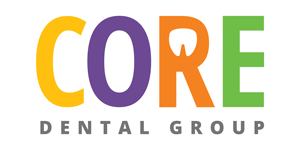![]()
Services – Oral Surgery
Wisdom Teeth Removal Overview
While many people will have no trouble with their wisdom teeth, these teeth are often removed to prevent more serious issues like an abscess or cyst. These teeth generally begin to surface in the late teens to early 20s, and many times, they become impacted as they develop, growing sideways into the other teeth or angled forward.
Wisdom teeth may erupt from the gum line or may still be set in the jaw. Teeth that are only partially erupted may present other issues as these teeth are difficult to clean and care for. Extractions are typically handled by an oral and maxillofacial surgeon. Some extractions are done as a preventative measure to safeguard against changes in the alignment of the teeth during orthodontics or more serious complications.
Dealing with Issues after Oral Surgery
Dry socket: While dry socket will generally heal on its own, consult your dentist to expedite the healing process and to ensure there is no risk of infection.
Nerve injury: The lingual and inferior alveolar nerves run near the surgical site and supply sensation and taste to the area. While nerve injuries are often temporary, nerve damage should never be overlooked, and you should contact your dentist as soon as possible.
Damage to prior dental work: If your procedure has damaged any prior dental work, contact your dentist. This is a risk involved during any surgical procedure.
Damage to surrounding areas: While it is rare, injury may occur around the sinus cavity or jaw depending on how the tooth was extracted. Any injury should be treated as a medical emergency. Again this too is a inherent risk involved in oral surgery.
When Prescribed:
- Impacted teeth
- Prevention of malocclusion
- Cysts, tumors or abscesses
- Partial eruption leading to an operculum
- Patient Experience
Your experience with oral surgery will vary based on how complicated the extraction performed is.
All procedures will begin with a consultation process where you will be shown any issues, current or potential, with your teeth along with a course of action. Regardless of the type of anesthetic used, you will experience numbness and possibly difficulty chewing or speaking following your procedure. However, this is only temporary. Recovery time will vary based on what type of procedure was used. A surgical extraction will require more time to heal. Inflammation is generally greater after surgery, so you may be given instructions for managing pain and swelling. Your dentist will provide you with a list of foods to avoid and how to care for your wounds during your recovery period. Bruising around the face or blood oozing from the wound is normal and will resolve in a few days.Your dentist may or may not use stitches to close the incision. Some stitches will dissolve on their own while others require a follow-up visit to remove.
You will also need to abstain from smoking during the first 24 hours following surgery and should avoid activities that may loosen the blood clots, such as drinking through a straw or rinsing your mouth out.
